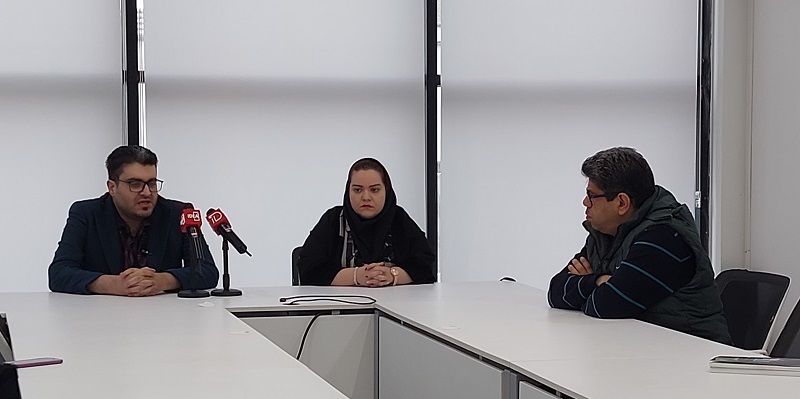The CEO of Iran Blockchain Association believes that regulation means legislation by popular institutions.
According to Iran digital economy annotation, the members of the blockchain association believe that the self-regulation phenomenon is supposed to act as a bridge between governance and businesses in the field of exchange, and coercive legislation will combine governance with flexibility. For this purpose, businesses in the field of cryptocurrency exchange must act through one of the three institutions of Blockchain Association, Fintech Association and Nasr Organization to continue their activities.
The press meeting of the members of the exchange working group of the Iranian Blockchain Association with the media was held today, the 28th of February, in order to inform about the issue of self-regulation of businesses in the field of exchange.
Self-regulation means legislation by popular institutions
Kaveh Moshtaq, the CEO of Iran Blockchain Association, pointed out that self-regulation means legislation by public institutions, and said: “The regulation of exchange businesses is the responsibility of three institutions: Blockchain Association, Fintech Association, and Nasr Tehran.” He pointed out that after this incident, the businesses that already had portals now have to be registered again by one of the three mentioned entities in order to be included in the legislative process.
According to Moshtaq, in addition to the mentioned items, the checklist includes a series of embedded items according to which businesses should be checked first and allowed to exchange if they meet the necessary criteria.
“Mahkameh Sharifzad”, head of the self-regulation committee of the Blockchain Association, further explained:
“The current meeting is to inform and call businesses in the field of cryptocurrency exchange to regulate through a framework that has been approved by the government. These businesses can be included in the list of businesses to be considered for organizations and governance through the announcements of the three institutions of Blockchain Association, Fintech Association and Computer Trade Union Organization. Businesses that are included in this list will be included in the category of legal businesses from today.”
Pointing out that the self-regulation committee has been established since the middle of this year, he said: “The whole procedure for handling the issuance of letters of recommendation for uploading to the E-namad system has been set up in this committee.” According to Sharifzad, the activists who were active before are not recognized and should continue their activities as legal entities. Because the framework approved by SRO for organizations and governance is the legal framework.
The application of businesses must be in the form of a legal entity
The head of the self-regulation committee of the Blockchain Association explained about the process of being placed in the queue: “Activists who want to continue their work in the field of exchange, must announce their request to the organizations in the form of a legal entity and after receiving the letter of introduction and uploading it to the system This material, wait for the next announcements to comply with the requirements and obtain this material.”
She also added: “Each of the businesses that operate in this framework, if they have portals, they will probably face the blocking of their portals from today onwards; Especially natural persons who have not yet taken steps to become legal. Even legal entities that have 7800 port but are not included in the framework of SRO will soon have their ports blocked.”
Sharifzad pointed out that the Blockchain Association did not host the presentation of this material to businesses and is only supposed to provide the letter of introduction to the businesses in the exchange field, and said: “Businesses that are not related to the exchange field, should not send a request to the Blockchain Association.”
He also explained about the checklist prepared by the association: “This checklist is built for the initial refinement of businesses and to identify businesses and their relationship with the field of exchange.” Sharifzad also pointed out that through this checklist, businesses that leave the association after obtaining a certificate will receive three reminders, and if the ambiguities are not resolved after that, they will be removed from the self-regulation list.
Sharifzad believes that the organizations are the auxiliary arm of the government for monitoring and check the checklist of dos and don’ts. They are also considered as a bridge between governance and businesses.
“Morteza Moazeni”, the head of the Exchange Working Group of the Blockchain Association, also explained about one of the rules in this checklist: “One of the items in this checklist is to register the office address and phone number of businesses. Our approach is not against the sovereignty, coercion and zero and one. In addition, all businesses of any size can adjust and grow their team.”




No Comment! Be the first one.